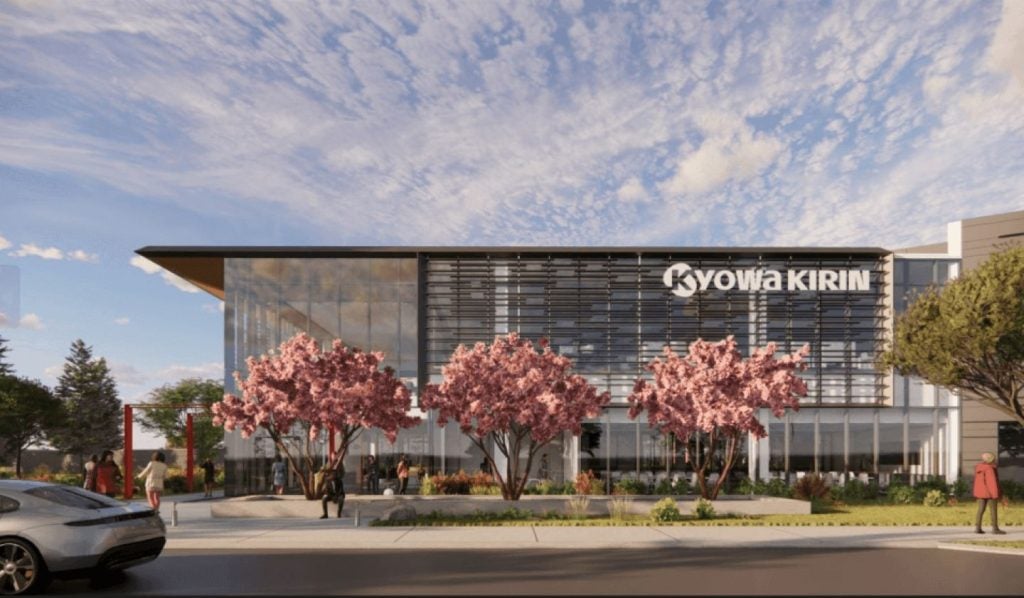Japanese pharmaceutical and biotechnology company Kyowa Kirin has received approval from its board of directors for an investment of $530m to establish a new biologics manufacturing plant in Sanford, North Carolina, US.
The development will bolster the production of biologic therapies for rare and serious diseases.
The planned 171,700ft² plant, which has two reactors, will manufacture therapies including next-generation antibodies for upcoming clinical trials and future commercial distribution, ensuring efficient supply chains.
Housed on a 75-acre campus in Helix Innovation Park at The Brickyard, the facility's location allows for potential future expansions in line with the company's growing portfolio.
Construction will commence in the second half of 2024, with the plant fully operational by 2027.
The investment will be complemented by performance-based incentives from state and local entities, amounting to $10m by 2036.
North Carolina's Department of Commerce estimates that these incentives will contribute $1.05bn to the state's economy during the grant period.
The Sanford plant will create 100 new jobs.
It will round out and enhance the global manufacturing network of Kyowa Kirin, which includes Japanese sites in Takasaki City, Gunma Prefecture, and Ube City, Yamaguchi Prefecture.
Kyowa Kirin North America/EMEA [Europe, Middle East and Africa] manufacturing regional head and executive vice-president Paul Testa stated: “The extraordinary complexity of the medicines we manufacture requires specialised skills and resources that are in plentiful supply in Sanford and the Research Triangle region.
“We’re excited to collaborate with area colleges, universities, businesses and civic leaders to ensure that our plans align with Sanford’s vision for growth, anchored in a rejuvenated manufacturing economy that offers diverse job opportunities and returns value to the community at large.”
In early 2024 Kyowa Kirin acquired Orchard Therapeutics, a developer of hematopoietic stem cell gene therapies, for an equity value of $477.6m (Y70.47bn).









